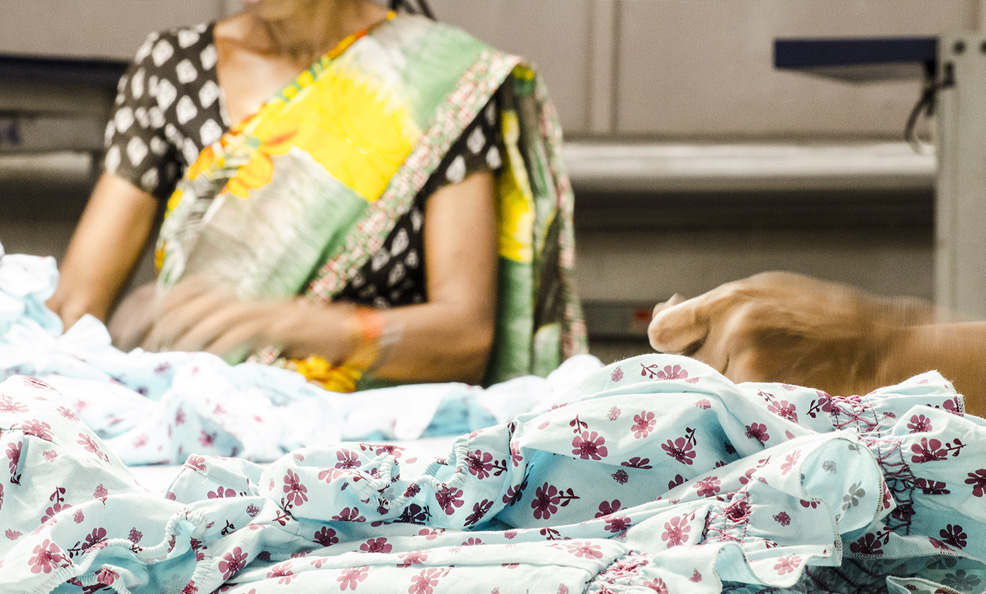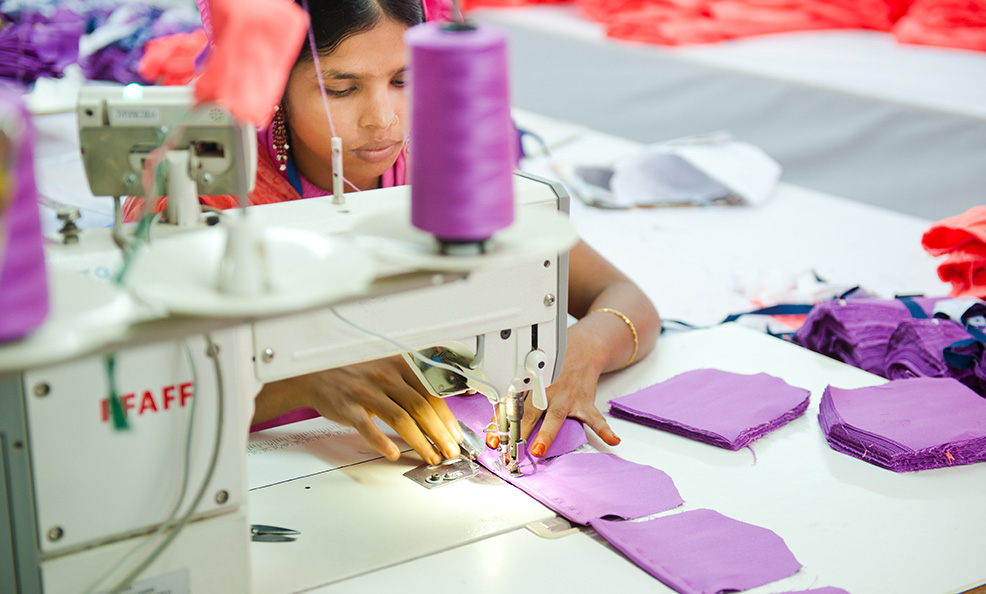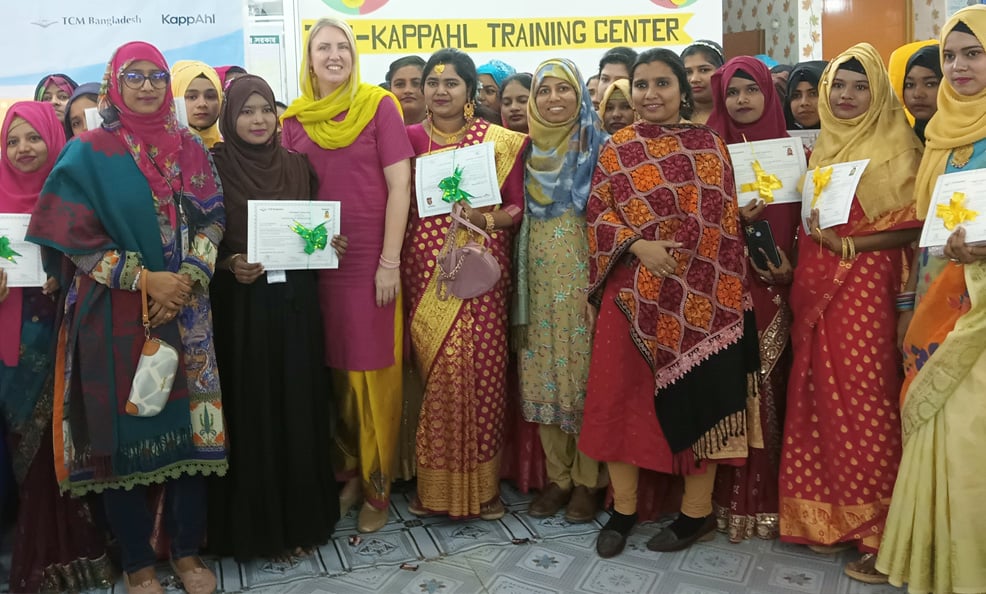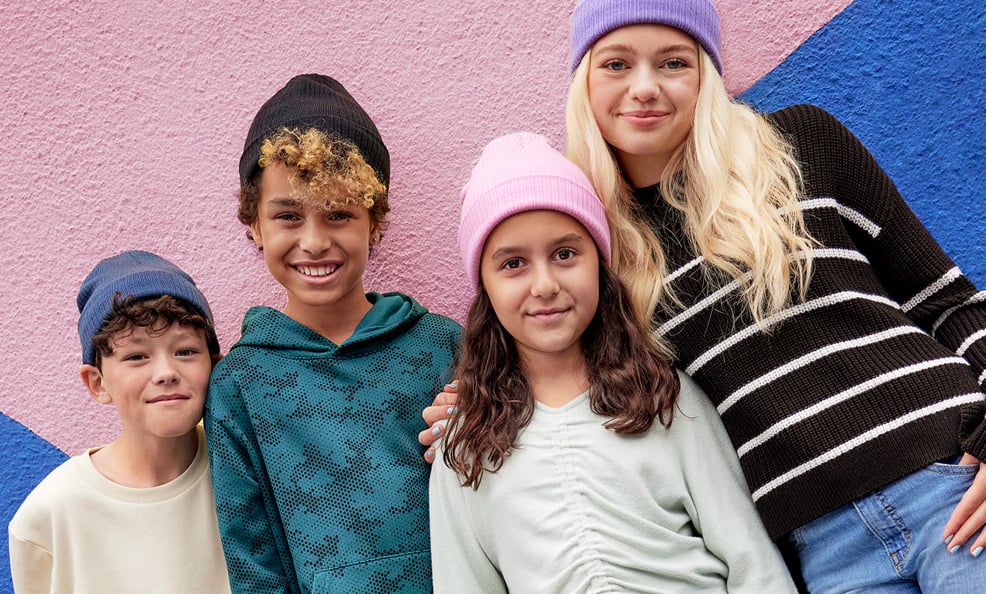- About Kappahl Group
- Sustainability
- Social sustainability
Social sustainability
We want to contribute to an inclusive and more equal world. That's why we work to promote social justice in every country where we operate.
We actively work to promote and protect human rights throughout our value chain. We follow the UN Guiding Principles on Business and Human Rights and the OECD Guidelines for Responsible Business Conduct.

We set standards for sustainable development
Everyone involved in making our clothes should have safe and healthy working conditions. We only work with suppliers who share our view on responsible clothing production and commit to following our Sustainability Commitment, our code of conduct.
This covers areas such as trade union rights, wages, working hours, workplace safety, and environmental impact. Most importantly, we have zero tolerance for forced labour and child labour.
To support sustainable development among our suppliers, we maintain a close dialogue. That’s why we have our own staff in our largest production countries, visit suppliers regularly, and follow up on our requirements for working conditions.
Tracking and transparency in our supply chain help us identify risks and ensure fair working conditions. We use TrusTrace, a tool that maps the entire supply chain—from raw materials to finished garments.
Our Sustainability Commitment for suppliers (PDF, 207 kB)
Our Human Rights Policy (PDF, 66 kB)
By being present and working long-term, we can drive meaningful change.
Collaboration – the key to change
No single player can create sustainable change alone. That’s why partnerships are essential to us in protecting human rights.
We are members of the Ethical Trading Initiative (ETI), which brings together businesses, trade unions, civil society, and public sector actors to ensure fair working conditions and human rights in global supply chains.
We have also signed the International Accord, an agreement aimed at improving health and workplace safety for millions of textile workers worldwide. Currently, safety programs are in place for Bangladesh and Pakistan, and we have signed both.
Long-term commitment to fair wages
Fair wages remain one of the biggest challenges in our production countries. A fair wage should cover basic needs such as food, water, housing, healthcare, education, clothing, transport, and childcare. The gap between the minimum wage and a fair wage can be significant.
Wages are closely linked to social challenges in production countries. Achieving lasting change requires governments, employers, and workers to establish a joint process based on collaboration and collective bargaining.
As a buyer, we have a responsibility to help accelerate this development. We do this by selecting suppliers who share our commitment to fair wages and by participating in industry collaborations such as the Ethical Trading Initiative (ETI).

Strengthening women's rights in Bangladesh
We want to support development in the countries where we operate and actively work to strengthen women's rights. In Bangladesh, one of our largest production countries, we do this through a training centre for women in Dhaka, fully funded by us and run by the TCM Foundation.
At the centre, women receive training in industrial sewing, household economics, and workplace rights. During their training, they receive financial support, and after graduation, all participants are offered employment.
Since its launch in 2009, the TCM Kappahl Training Center has trained more than 1,500 women.

"Education and employment are a path out of poverty. That’s why we run a training centre for women."
Sandra Roos, Vice President of Sustainability
Supporting children’s rights organisations
The Kappahl Group has been supporting organizations that help children and young people in Sweden, Norway, Finland, and Poland for many years. In Sweden, we are one of Bris' largest partners. We also collaborate with Kors på halsen in Norway, the Mannerheim League for Child Welfare in Finland, and the Empowering Children Foundation in Poland.
In 2024, we and our customers raised a total of 520,000 euros to support our partners' important work for children. Together, we make a difference!
Read more about our partnership with Bris.

We care for our employees
Our employee promise, "We promise you the right to always be yourself – a place to belong," means that everyone here should feel seen, included, and encouraged to be themselves. Different backgrounds and perspectives make us stronger as a team.
We maintain an open dialogue about prejudice and have zero tolerance for discrimination. All employees are trained to raise awareness of diversity and inclusion issues, particularly around our own unconscious biases.